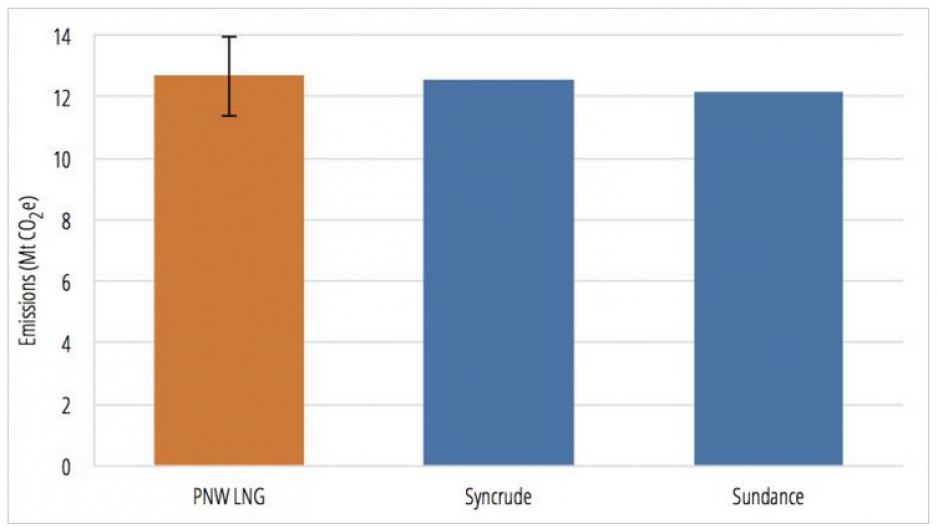The Pembina Institute, which was part of the B.C. Climate Action Leadership Team that concluded B.C. could develop a liquefied natural gas industry and still meet its greenhouse gas emission targets, suggest those two goals are now mutually exclusive.
In a letter to federal Environment Minister Catherine McKenna, the Alberta sustainable energy think-tank urges the minister to reject Petronas’ bid to build the $36 billion Pacific NorthWest LNG project – something Petronas may not have the financial wherewithal to build any time soon anyway, given current LNG prices.
Had the B.C. government implemented key recommendations in its update to the 2008 Climate Action Plan, such as raising the carbon tax and committing to electrification of the gas fields on Northeastern B.C., the CLT concluded that LNG could still fit within B.C.’s GHG limits.
But in announcing the updated plan last month, the B.C. government deferred on raising the carbon tax until other jurisdictions catch up, failed to implement mid-term GHG reduction targets, and committed only to electrifying the Peace region if the federal government helps with funding.
Without some of those key policies in place, the Pembina Institute now calculates the GHG emissions from PNW LNG alone will be between 9 and 10 million tonnes of CO2 equivalent by 2030. B.C.'s total targeted limit is 13 Mt C02 by 2050, the Pembina Institute says.
“It is for these reasons that the Pembina Institute recommends that the Environmental Certificate for the Project be rejected,” Matt Horne, Pembina’s B.C. director, tells McKenna in a letter dated September 7.
McKenna is expected to make a final decision on the project sometime around the end of this month. Even if the project is approved, there is no guarantee Petronas will execute on its final investment decision. Energy analysts now forecast that no new large-scale LNG projects are expected to get FIDs in the next few years until a global glut eases and LNG prices recover.




